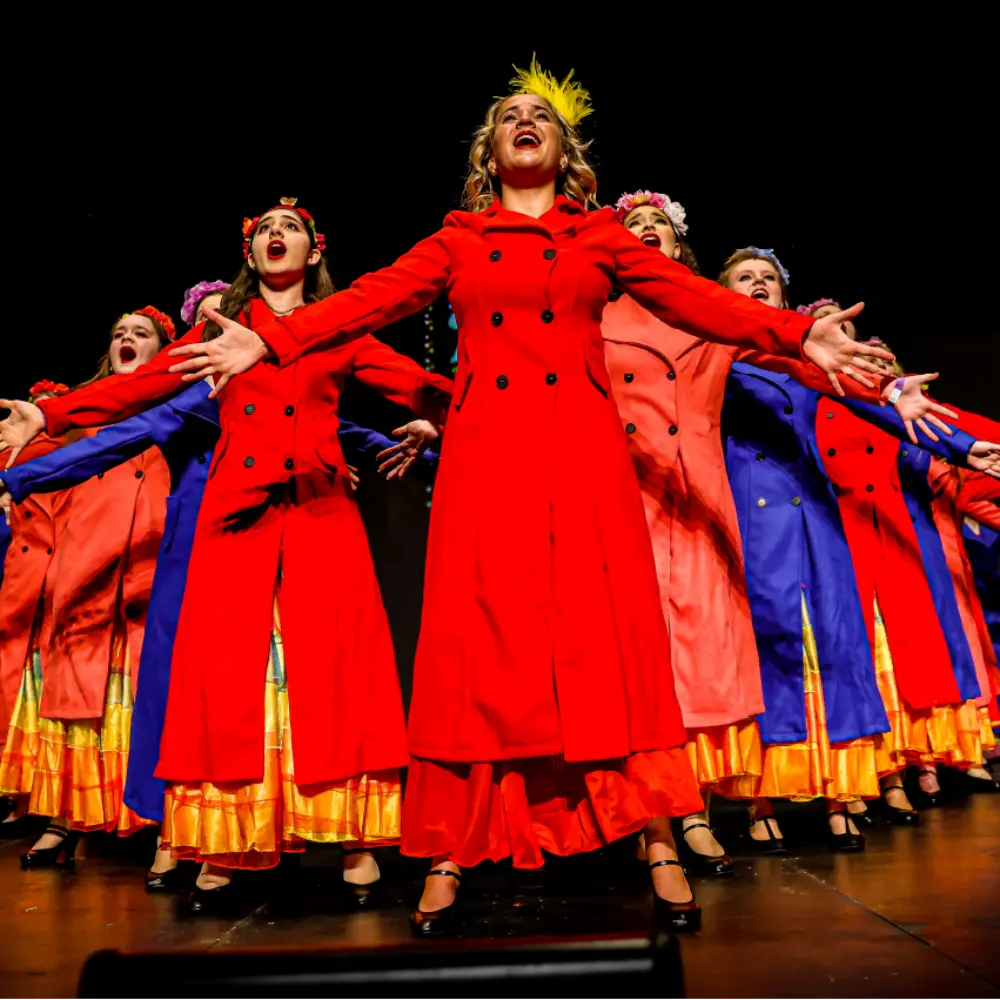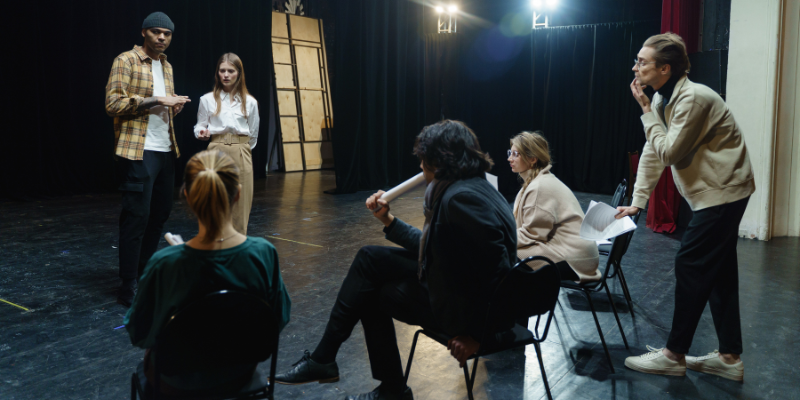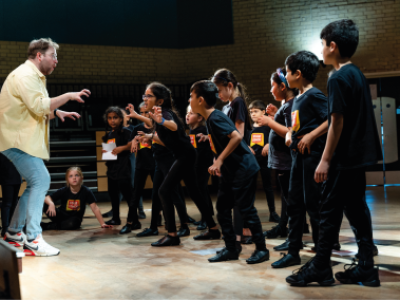
- Guest blog
How To Start Your Own Theatre Company
This is a guest post from Ollie Norton-Smith, teacher at Stagecoach about starting, running and growing a theatre company.
In 2017, I founded Spies Like Us with some friends. The company is now an award-winning, internationally-renowned ensemble physical theatre company, but we had all met as members of the same youth theatre rehearsing shows in two crazy weeks before performing them at the Edinburgh Festival Fringe. It just goes to show how the relationships you form doing things like Stagecoach are invaluable!
In our first three years, we made three hit shows that debuted in Edinburgh before going on to play around the UK and even internationally, garnering five-star reviews, awards and accolades and exciting partnerships with venues and producers. Development on our fourth show, Speed Dial, was heavily impacted by the pandemic. However, after work-in-progress sharings as the clock ticked down towards lockdown, we finally staged the finished show in 2022 to a slew of glowing reviews in national publications and plans began for a national tour. We’ve also developed a strand of work with schools and youth groups, delivering performances, workshops, masterclasses, Q&As and lesson resources.
Starting out
In many ways, starting a theatre company is easy. A group of like-minded people who share a vision for an idea get together and do it to the best of their abilities. You approach venues and ask for a slot, choosing the best (or sometimes only) offer you have and then you get down to the business of dreaming and planning. At some point a venue asks if there is a name for this group of people, so you spend some time (too long) coming up with a name like you’re a team on the Apprentice. You try to avoid the pretentious (‘Art is Pain Theatre Company’), the cliché (‘New Play TC’), the name devised by committee in a marketing department (‘Purple Hippo TC’), the perplexingly foreign (‘Teatro Fantástico TC’) and end up with something a bit off-beat (‘Spies Like Us’, if you will). By this point, this group of like-minded people is now a theatre company.
There are also challenges, like defining your objectives for your project. They may be creative, practical or business goals, and could be short, medium and long-term in their vision. Ours were quite simple for our first show:
– Explore a strong production concept to adapt a beloved book into a fast-paced physical comedy.
– Perform in an ensemble physical style, having been inspired by theatre companies and practitioners like Complicité, Gecko & Steven Berkoff.
– Create a company ethos based on collectivism and sharing responsibility.
– Make people laugh.
An important thing to remember in the early stages of making a new project or starting a company is that nothing is going to happen unless you (as an individual or collective) make it happen. I remember finding it comforting to think that every successful person, group or collective in any context has always had to do something for the first time. Whilst the excitement and optimism is easy, the mental pressure can be most challenging at the start of a theatre company’s journey. It is also freeing – no one knows who or what you are yet. The potential is limitless as either triumph or disaster. Your goals should reflect this – dream big, but think about what you can control.
.png.aspx)
The practicalities of making theatre
I have come to learn that there is a relatively accurate equation making professional theatre of any kind:
Idea + time + money + space = A Show
How does this relate to starting a theatre company? Well, there are two things you can’t compromise on: the idea and the show. One feeds the other and without one you don’t have anything to share with an audience. With everything else, you can rebalance the equation to make it suit the resources you have available to you. For example, most of our early Spies shows used the following:
Idea + time + space = A Show – money
We recognised this equation very early on, and considered how we could approach it with our specific set of circumstances:
- We were students, so we had time in our Easter and Summer holidays to do an initial research and development process and then an intensive period of rehearsals.
- We had support from venues who were able to offer us rehearsal space.
- We didn’t have very much money, but our stories were often set in the past, visited lots of locations and invariably called for more than five actors. We couldn’t afford the set, props, costumes or actors to be able to do this naturalistically, so we got creative. Actors played multiple roles using their physicality to distinguish between characters, and props were repurposed to suggest different settings and purposes.
Understanding how we could balance this equation was a large part of what created our playful performance style. This is where actors’ bodies could become anything, and the few items of set and props we had were used for as many purposes as we could imagine – living room lamps became villainous creatures lurking in the gloom, buckets became drums and a vacuum cleaner became – well, around 50 different things! But that’s a story for another day…
This is just one of the ways that this equation can be rebalanced – I’m sure all of us have
seen a production where the idea wasn’t as strong, but lots of money invested had made the show still feel spectacular! Understanding what you have available to you is a key part of starting a theatre company, and using this equation can guide your activity and ambitions.
What’s next?
You perform your show. Is it a success? A failure? What does ‘success’ or ‘failure’ mean? Either way, you might want to do another show to build on your early achievement or to positively respond to fair criticism. You will have already demonstrated the four qualities required to create and build a successful theatre company: determination, ambition, organisation, creativity and luck. Whatever the reception, and whether there were 500 strangers in the audience or less than a handful of friends and family, you will have learned so much. The world needs more stories and people to tell them and doing just that with your friends can be a truly great joy.

